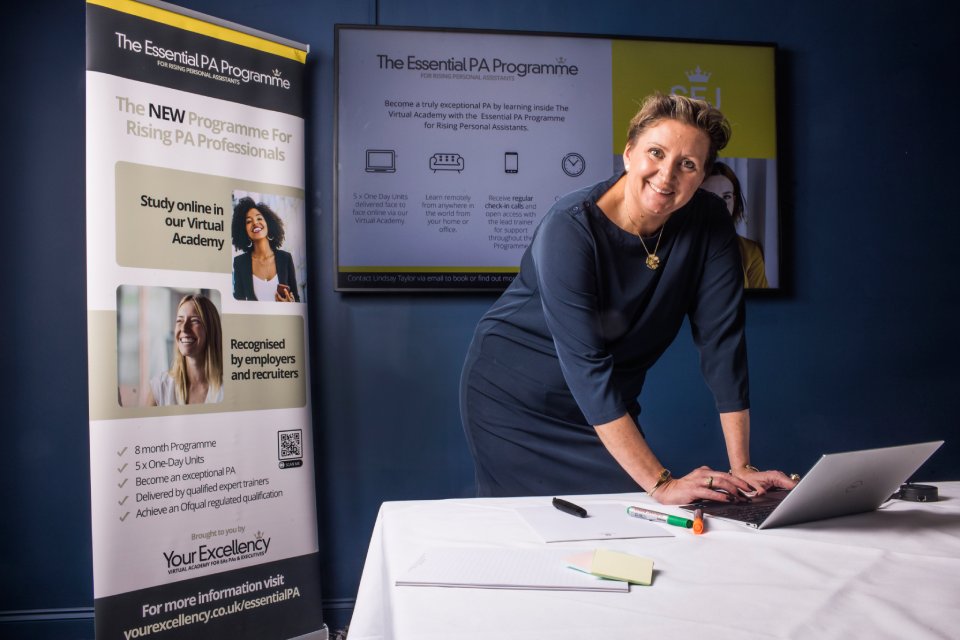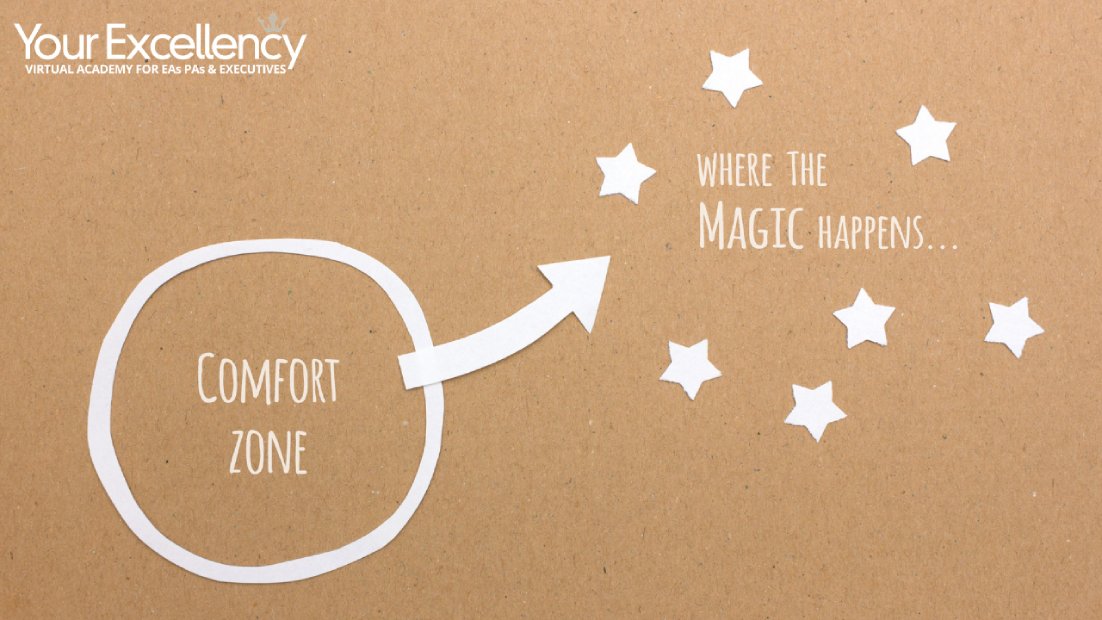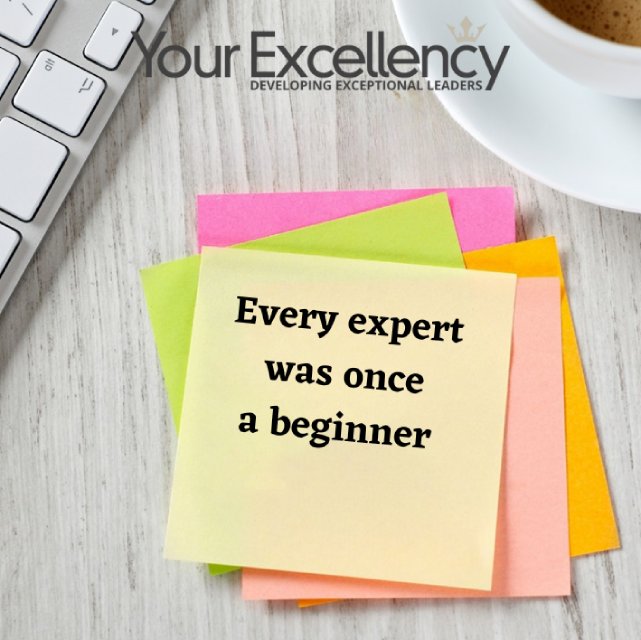We are delighted to welcome learning and development specialist Lindsay Taylor, Director of Your Excellency Limited in a regular new career development feature here at PA Life online. Lindsay will be sharing useful career tips and advice to PAs, EAs, VAs and other business support professionals.
An introduction message from Lindsay:
Hello! I’ve been a learning & development specialist for 16 years. Prior to that I worked as an EA and PA, which means I’ve “been there” “done that” “worn the t-shirt” and absolutely understand the diversity of the PA/EA role and the inevitable challenges you face.
In my 10 year career as a PA (both UK and US based), I can, hand on heart, say I loved the role, the fact that no two days were the same, and that I got involved in such a variety of tasks. I was proud to be that “go to” person in my organisation with a cheery “everything is figure-outable” attitude. But honestly, if I look back at my working career as a PA I really wish I’d had access to more training, more advice and that encouragement and “oomph” to push myself further to really excel at what I did and to fully acknowledge and appreciate the value I was adding. I wish I’d stepped out of my comfort zone more often.
Successful PAs drive change
When you understand the processes and procedures to employ, when you know the quirks and preferences of the Senior Leadership Team members you’re supporting, it’s a nice comfy place to be isn’t it? Why “rock the boat” and change something if it’s working just fine as it is? You’re relaxed into the adage that “If you always do what you’ve always done you’ll always get what you’ve always got”. As I said, a comfortable place to be BUT you’re missing out on trying things in a different way with potentially a better process and result.
You aren’t instigating and driving change for yourself, your team or your organisation with this relaxed attitude. As proactive professional PAs we should be constantly evaluating and upgrading our working practices. We should be exploring new ways of thinking, being, doing and achieving. And that is the purpose of this career development column. I hope it gives you the encouragement and “oomph” to push yourself further, to excel at what you do and to fully acknowledge and appreciate the value you are adding. Stepping out of your comfort zone is where the magic happens!
Understand The Learning Ladder
When I took my first EA role fresh out of college I was frustrated that it was taking me time to familiarise myself with new tasks, new terminology, new processes and getting to know the team I was there to support. My enthusiasm and drive were there in bucket loads but there was an inevitable “slowness” and “clunkiness” to my actions as I tried to grasp new concepts and learning.
If only I’d had an awareness and understanding of The Learning Ladder – this knowledge would have eased some of the pressure I was putting myself under and quietened the frustration I was feeling.
Of course, you can’t be amazing at something the first time you do it. It takes practice and repetition to become more skilled and competent. By understanding The Learning Ladder, you’ll be ready for the inevitable “slowness” and “clunkiness” in any new, unfamiliar situation.
The Learning Ladder is an incredibly useful model to help you understand the different stages of learning. You work your way up a metaphoric ladder from the bottom rung of Unconscious Incompetence to the top rung of Unconscious Competence. Recognise where you are on your learning journey.
Unconscious Incompetence
You are not aware of the existence or indeed relevance of the skill or learning. Before any development can happen you need to be conscious of the skill. Trainers and teachers play an essential role here in helping you identify a deficiency in your skillset and making you aware of the benefit to your personal effectiveness in gaining that skill or learning.
Conscious Incompetence
You become aware of the relevance and benefit to you of the skill or learning and ideally embrace the need and want to gain this skill in order to improve your effectiveness. Having a clear idea of the extent of the deficiency and what level of skill is required is essential for you to move to the Conscious Competence stage – as is your commitment to learn and practice the new skill.
Conscious Competence
This is when you can successfully and personally perform a skill without assistance – but still have to concentrate on applying it – it is not yet “second nature”. “Practice makes perfect” applies perfectly here if you are to make the move to Unconscious Competence.
Unconscious Competence
This is when you become practiced at a skill so it is “second nature” – a good and common example is driving. Because the skill has become in effect more instinctual, you can perform that skill at the same time as doing something else – for example, you can hold a conversation with your passenger whilst driving a car.
A great friend and trainer of mine describes this as “in the muscle” – the skill you are performing has entered the unconscious part of your brain. Importantly, now you are at the top rung of the Competence Ladder, it is essential to “not take things for granted” – very often we can become complacent here and fall in to bad habits or consider ourselves to be expert in a particular field, skill or learning to the determinant of ourselves and others.
To be at the very top of your effectiveness may necessitate you moving down a rung on the ladder and taking stock of your unconscious competencies. Put into practice conscious competence and consciously concentrate on practicing the skill or learning.
Check in with yourself on your level of complacency and ask yourself how up to date your skills are too.
As a PA Life Club member (free to join for PAs, EAs, VAs and Office Managers) you can take advantage of Your Excellency Limited training offerings – see the Club website and click on Offers.

















